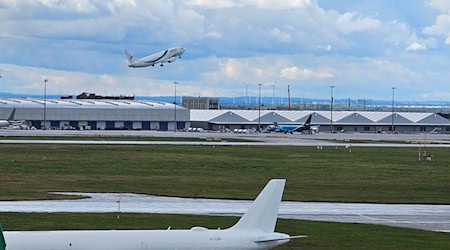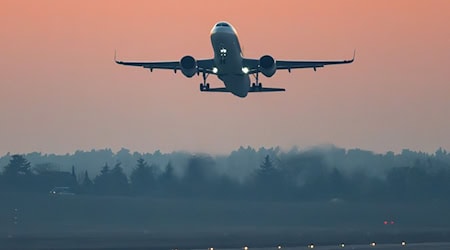The number of tourists in Berlin continues to rise, but the high level from before the coronavirus pandemic is still a long way off. However, Senator for Economic Affairs Franziska Giffey (SPD) is firmly expecting a further increase this year. "The goal is clearly to break the 30 million overnight stays mark in 2024 - and we will achieve that," she said on Friday at the presentation of last year's tourism report. Burkhard Kieker, Managing Director of the tourism company Visit Berlin, is similarly optimistic: "We expect at least one million more visitors here in the city."
Kieker is hoping for events such as the European Football Championship, among other things. Five matches and the final will be held in Berlin this summer. There will also be the 50th Berlin Marathon this year and the 35th anniversary of the fall of the Berlin Wall in November. All of this should be an occasion for many to visit Berlin.
Last year, 12.1 million guests (up 16 percent) came to the capital and accounted for 29.6 million overnight stays (up 12 percent), according to the balance sheet of the Berlin-Brandenburg Statistical Office presented by Giffey and Kieker. In 2022, there were 10.4 million guests and 26.5 million overnight stays.
However, the number of overnight stays in the record year of 2019 before the start of the pandemic was significantly higher at 34.1 million. Nevertheless, the proportion of international overnight stays rose to over 40 percent last year for the first time since 2019. Guests from overseas and other European countries in particular were initially slow to return after the pandemic.
As before, the majority of visitors to Berlin (59.7%) came from Germany - a total of 17,668,000. In terms of visitors from abroad, the UK was in first place with 1.3 million overnight stays, followed by the USA with 1.2 million, the Netherlands with 843,000 and Spain with 642,500.000 and Spain with 642,500 overnight stays.
The positive development in tourist numbers from the UK, with an increase of a good 35 percent, is due in particular to the fact that there has been a significant improvement in flight connections, said Kieker. This is precisely where he and Giffey still see a considerable need for action.
Further growth is hardly possible without more flight connections. In the view of the Senator for Economic Affairs, this is a "top priority" for tourism in Berlin. Berlin and the eastern federal states are still at a disadvantage compared to western Germany in terms of air traffic.
Visit Berlin and the capital's BER airport are in intensive talks with the airlines, said Kieker. It is necessary to work on further long-haul flights as well as to strengthen the medium-haul offer again. Some other cities, such as Barcelona and Amsterdam, have emerged from the coronavirus crisis faster than Berlin in terms of tourism due to better flight services.
Copyright 2024, dpa (www.dpa.de). All rights reserved










